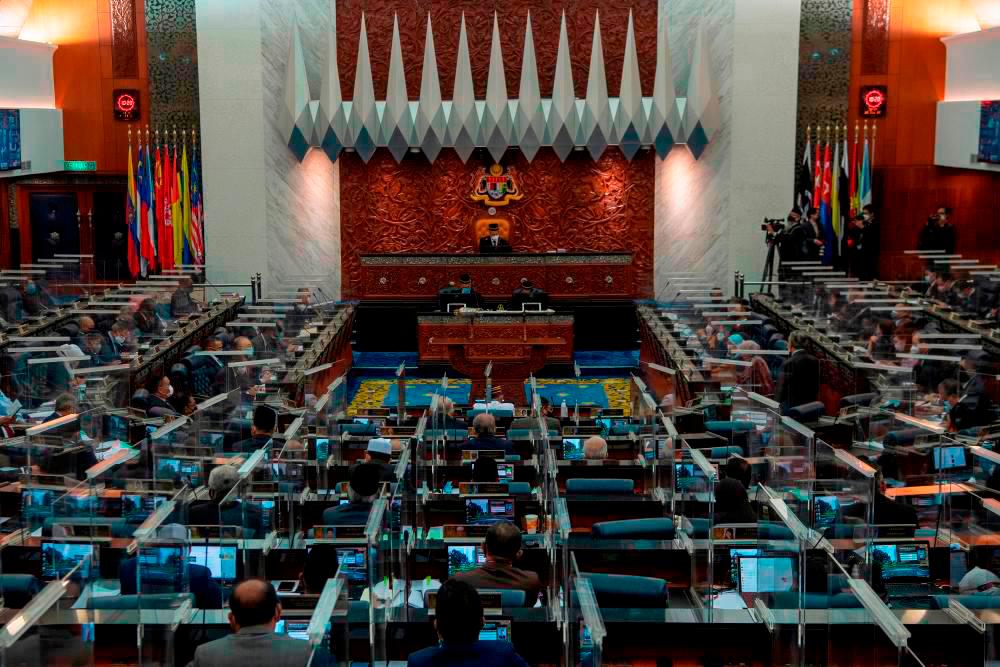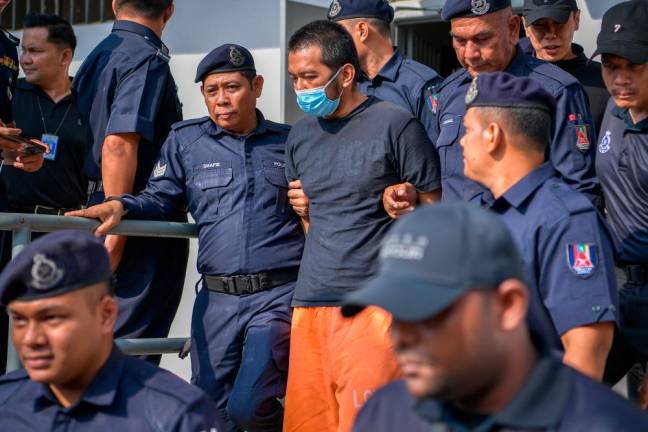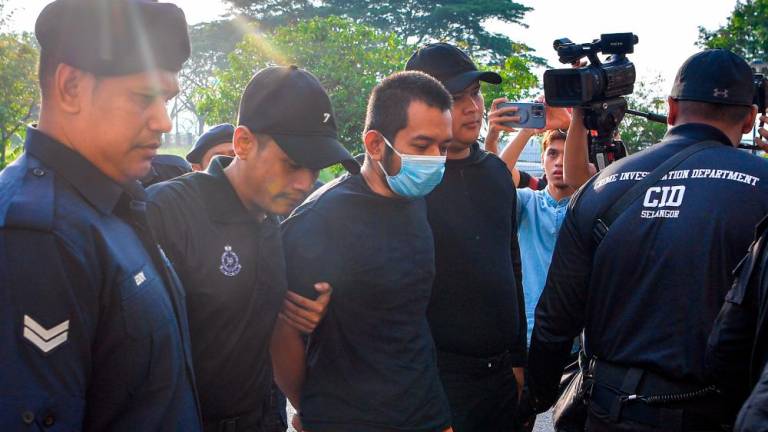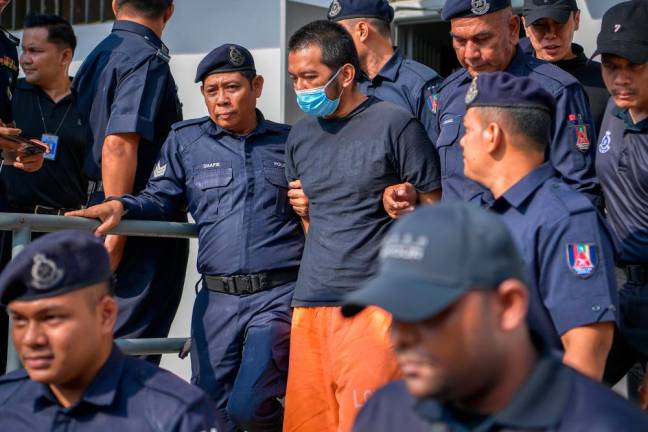AMENDMENTS to the Prevention and Control of Infectious Diseases Act 1988 (Act 342) have triggered heated reactions within the Dewan Rakyat and also from the public, where netizens and activists have mobilised to oppose the amendments to Act 342.
The arguments largely (if not solely) focus on penalties for offences under the Act: (1) the maximum amount of compound fine to be issued to an individual and a corporation, and (2) increasing the maximum fine and jail sentence in a “general penalty” provision.
I would like to share my views after going through all the amendments proposed in the amendment Bill for the first reading in Parliament.
It is important to first consider the objectives and functioning of all the amendments and to understand the existing weaknesses, limitations and gaps of the parent Act 342.
This 32-year-old law has had six amendments in the past, but all merely to add new infectious diseases to the list in the First Schedule, the latest being Coronavirus Disease 2019 (Covid-19) in June 2020.
Now it is time to update some practical and necessary changes to the Act.
To be fair, the proposed amendments to Act 342 are a response to Covid-19 because this still ravaging virus, with its various mutations, is very much unlike the other 29 diseases on the list.
The challenges are massive – it is unprecedented – a disease which has claimed more than 31,000 lives and infected 2.7 million people in Malaysia.
There are numerous complaints or grievances against government officials regarding the handling of the pandemic, namely in terms of testing, tracing, quarantine, surveillance and monitoring of the disease, as well as enforcement of standard operating procedures (SOP).
The Health Ministry (MOH) workforce has been severely strained in terms of performing their duties on all these procedures.
When the Emergency was declared in January, the National Security Council was the chief decision-making body.
Confusion and conflict often arose in public due to many inconsistent policies that were churned out owing to multiple considerations besides public health.
These sometimes compromised or undermined the effectiveness of Covid-19 disease prevention and control measures under the jurisdiction of the MOH.
Now, the emergency period is over, the emergency ordinance has ceased to be in effect and Act 342 leaves MOH with inherent constraints and uncertainties.
Overall, the nature of the proposed amendments indicates that MOH is seeking to fill the gaps based on the lessons learnt from battling the pandemic over the past two years, while preparing for the new challenges ahead.
The emergence of the Omicron variant is a stark reminder that Covid-19 is far from being under control.
In its present form, Act 342 is insufficient to deal with present and future pandemic-related health threats.
The amendments are thus necessary to allow MOH to act in the current crisis and in other new or emerging public health crises.
At the same time, SOP flouting and non-compliance among certain sections of society (e.g. some individuals, corporations and organisations or groups) has caused many cases, clusters and even deaths. The risks and consequences associated with cases of SOP flouting are well-documented.
Without good and effective disease control, the burden of public resources to find-test-trace-isolate-support and the unnecessary loss of lives are the sources of public frustration and distrust of government.
No Act will be taken seriously if it does not ensure the proportionality of penalties (i.e. right amount of deterrence) on those who do not comply and if the law is not enforced reasonably, fairly and effectively.
This background understanding of the issues is crucial to assess the urgency for the amendments to be adopted within this Parliament sitting. The rapid transmissibility of the Omicron variant looks increasingly obvious.
In South Africa, it has totally dominated and “dethroned” the Delta variant. As of Dec 18, 13 Omicron cases were reported in Malaysia.
A new wave of the pandemic is looming on the horizon, especially now when more people have started to socialise and mingle more freely due to gatherings and events in the holiday period.
Although the disease severity caused by the Omicron variant is reportedly lower, if the spread of the disease (even among fully vaccinated persons) is not well controlled, the price of negligence will be a surge in devastating new transmission peaks, and rising death numbers, once again adding to the social cost and disruption.
The public must do its utmost to safeguard against Covid-19 “fatigue” - extra vigilance is now a key priority.
Let us now look at the amendments. The amendments to Section 2 update the definitions of the responsible officers, replacing “health inspector” with “Environmental Health Officer” or any suitable person. This new definition retains local authorities to help in enforcing the Act.
There are two amendments to Section 10(2): First, medical practitioners are required to report any suspected case of infection to the health authority, even if it is not yet confirmed with a laboratory test. This would allow time for the health authority to respond faster with a quarantine order to prevent further spread of a disease. There are, however, concerns that failure to do so could trigger a compound fine.
Secondly, the restrictive reference to “the forms (‘borang’) determined by the regulation orders under the Act” is replaced by “whichever form (of document) determined by the Health Director-General (DG)”.
In rapid responses to many new situations where more documents have to be produced for different functions, it makes sense to not have to wait for the health minister to gazette new regulations for various forms.
The current Act only recognises “quarantine station” while home quarantine is now an acceptable part of Covid-19 pandemic response. Hence, the addition of a new Section 14A.
There are concerns that under Section 14A(2), “an officer is given authority to use necessary force to ensure the (quarantine) order is complied with”.
To be fair, this is already in the existing Section 15(2).
The government could consider adding another word “reasonable” and give examples in the regulation concerning the new Section 14A(2).
While there are documented cases of home quarantine orders being disobeyed thus posing infection risk to the local community, allowing the use of force has to be accompanied with checks.
Next, a new Section 15A is proposed to order confirmed patients, or suspected cases or any (close) contact to wear a tracking device for monitoring purposes.
This is an important tool for monitoring the compliance of home quarantine orders, and this was not envisaged 32 years ago when Act 342 was passed.
The new Section 21A (in Part IV of the Act concerning controlling the disease spread) empowers the Health DG to give any general or specific instruction to any individual or group for preventing the disease spread, and any violation of such instruction is considered an offence.
This allows some flexibility for the health authority to give new instructions adapting to changing situations.
While there are concerns that this can be abused however, there could also be situations where the DG has to act swiftly and intervene by giving instructions. How does one deal with non-adherence to the instruction order then?
There is a new Part IVA called Enforcement which confers the necessary investigation power to the officer enforcing the Act, following Criminal Procedure Code (subsection 21B), as well as requiring people to provide any information relating to disease control and prevention to the officer (subsection 21C).
This new Part IVA seeks to empower officers of MOH and others under the Act to contribute to more effective enforcement with relevant and important information to help contain the disease spread.
The new Section 22A creates a new category of offenders: body corporate.
The current Act 342 only covers individuals who are responsible, thus there is no legal ground to take action under the Act against a company which consists of many decision makers including directors and managers who should be responsible for the non-compliance of SOP and subsequent consequences.
Section 22A(2) also covers the person or agent in charge of workers, and they have to take individual responsibility.
The current Act does not distinguish among these categories of actors, so the maximum compound fine is only RM1,000 for a responsible individual.
The second part of this article will be published tomorrow. Comments: letters@thesundaily.com












